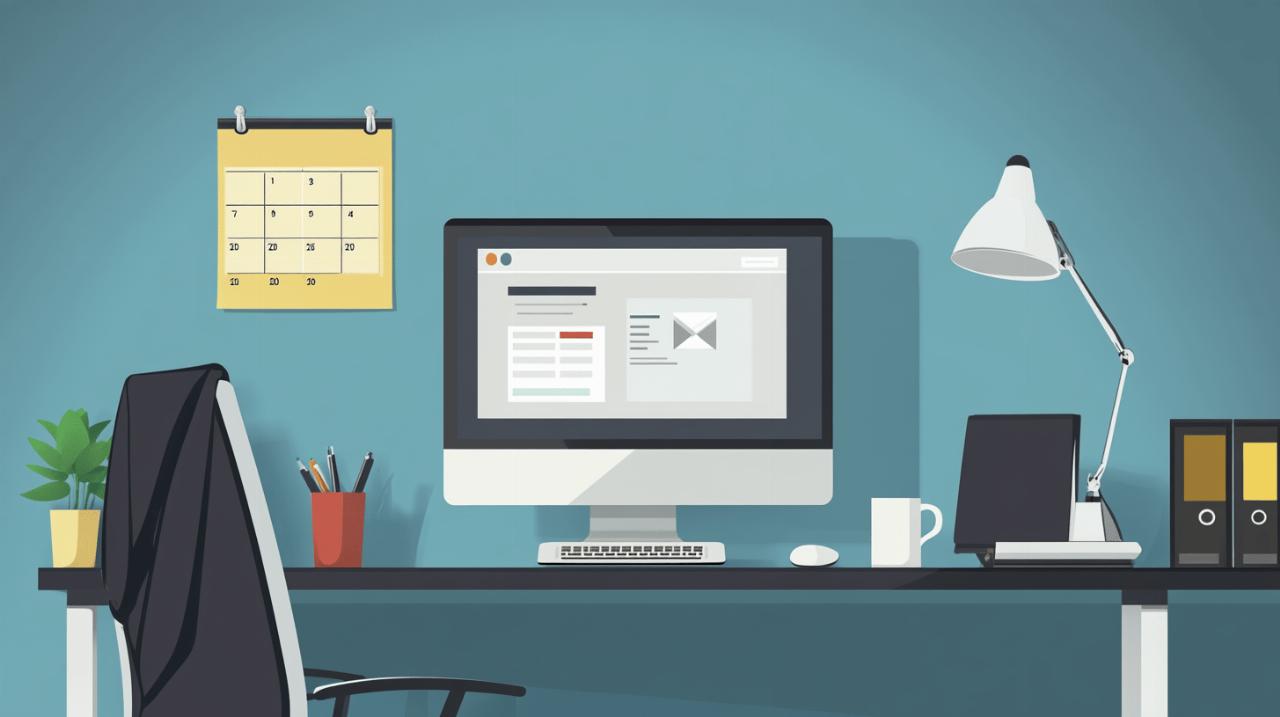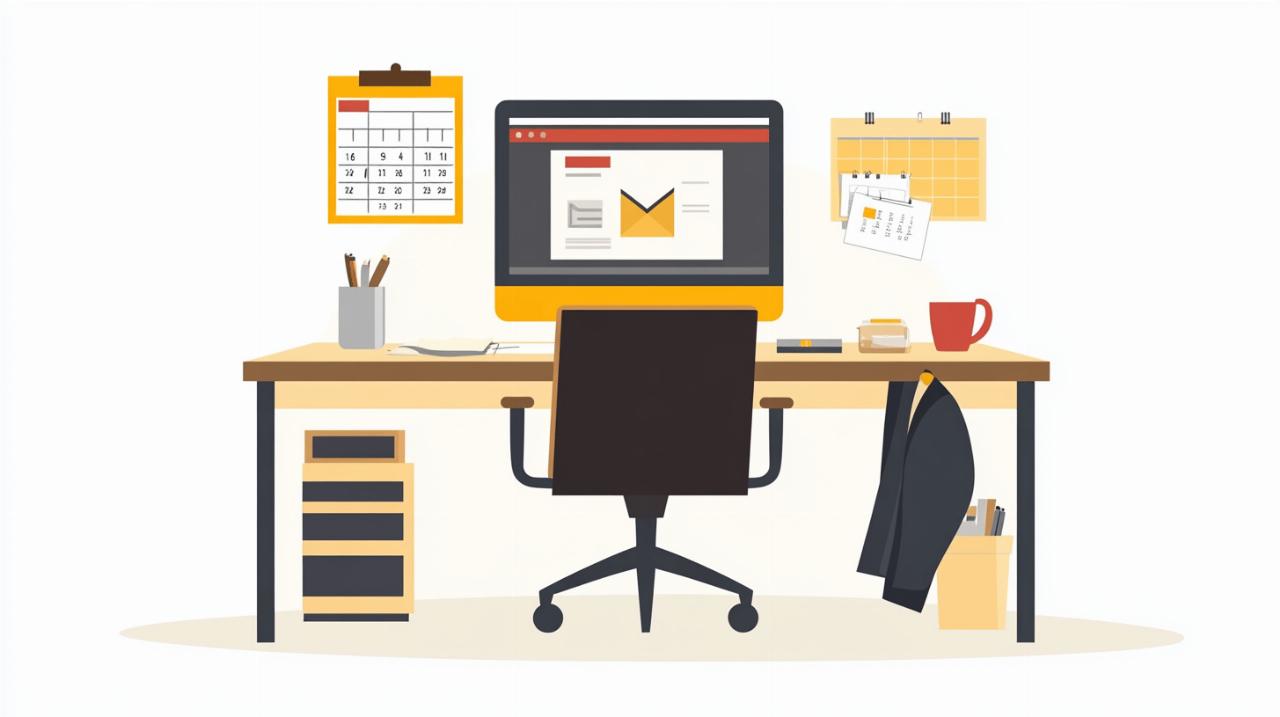Receiving an email inviting you to a job interview marks a significant milestone in your journey towards securing a new role. This moment represents an employer's interest in your candidacy and presents the first real opportunity to demonstrate your professionalism beyond your initial application. The manner in which you respond to this invitation can influence perceptions and set expectations for the interactions that follow. Understanding how to craft a thoughtful, accurate, and timely confirmation email ensures you begin this crucial phase on the right footing and reinforces your suitability for the position.
Understanding the Purpose and Importance of Interview Confirmation Emails
Why Interview Confirmation Emails Matter in the Recruitment Process
Interview confirmation emails serve multiple essential functions within the recruitment process. First and foremost, they verify critical logistical details such as the date, time, location, and format of the meeting. This verification helps prevent misunderstandings that could lead to missed appointments or confusion on the day itself. By restating these particulars in your response, you create a written record that both you and the employer can refer back to if any questions arise later. Beyond the practical aspects, confirming your attendance signals to the hiring team that you are organised, proactive, and genuinely enthusiastic about the opportunity. Approximately 92 per cent of recruiters primarily use email to communicate with potential candidates, making your written correspondence a vital touchpoint in their assessment of your candidacy. This exchange also offers a window into your communication skills and attention to detail, qualities that many employers value highly regardless of the specific role. A well-composed confirmation demonstrates respect for the recruiter's time and effort while subtly reinforcing your interest in joining their organisation.
Setting the Right Tone: Your First Proper Engagement with the Employer
The tone you adopt in your confirmation email matters considerably. This message represents your first proper engagement with the employer beyond the formalities of submitting an application. Striking the right balance between enthusiasm and professionalism is key. You want to convey genuine excitement about the prospect of discussing the role in person, but without appearing overly casual or presumptuous. A courteous acknowledgement of the invitation, coupled with a brief expression of appreciation, helps establish a positive rapport. Avoid overly elaborate language or excessive formality that might come across as stilted or insincere. Instead, aim for clarity and warmth, ensuring that your personality shines through while maintaining a professional demeanour. This approach reassures the hiring manager that you are personable and easy to work with, qualities that often weigh heavily in selection decisions. Remember that around 85 per cent of job applicants prefer receiving interview invitations via email, which underscores the medium's importance in contemporary hiring practices and highlights the need to treat these exchanges with the seriousness they deserve.
Crafting your response: key components and best practices
Essential Elements to Include in Your Confirmation Reply
A comprehensive confirmation email should incorporate several key elements to ensure clarity and completeness. Begin with a clear and relevant subject line that immediately indicates the purpose of your message. Something straightforward such as 'Interview Confirmation' followed by the job title and your name works well. Open with a polite greeting that addresses the recruiter or hiring manager by name whenever possible, as personalisation demonstrates attentiveness and respect. Express your gratitude for the opportunity to interview, acknowledging the time and consideration the organisation has invested in reviewing your application. Next, explicitly confirm your attendance by restating the date, time, and location or platform details provided in the original invitation. This repetition serves as a safeguard against any miscommunication and reassures the employer that you have noted the arrangements correctly. If the interview is to take place remotely, mention the platform and confirm that you have the necessary access or links. Should you require any additional information or clarification about the interview format, duration, or the individuals you will be meeting, pose those questions courteously in this reply. Finally, provide your contact information, including a telephone number, to facilitate easy communication should the recruiter need to reach you at short notice. A professional sign-off, such as 'Kind regards' or 'Yours sincerely', rounds out the message and leaves a polished impression.
Demonstrating professionalism through grammar, tone, and timing
Prompt response times are crucial when confirming an interview. Aim to reply within 24 hours of receiving the invitation, as this demonstrates respect for the recruiter's schedule and reinforces your eagerness to progress. Replying on the same day or the next business day is ideal and signals that you are both attentive and well-organised. The language you use should be clear, concise, and free from grammatical errors or typographical mistakes. Proofreading your email carefully before sending it is essential, as even minor errors can detract from the professional image you wish to project. Consider reading the message aloud to catch awkward phrasing or ambiguities that might not be obvious at first glance. Maintain an enthusiastic yet measured tone throughout, avoiding overly effusive language that might seem unprofessional. Your goal is to convey confidence and genuine interest without appearing desperate or overly familiar. Personalisation plays a significant role here as well. Addressing the recruiter by their name, referencing the specific role and company, and tailoring your message to reflect the details of the invitation all contribute to a more engaging and memorable communication. This level of care demonstrates that you value the opportunity and have taken the time to craft a thoughtful response rather than relying on a generic template.
Practical Considerations and Common Pitfalls to Avoid
Managing your schedule and preventing double bookings
 One of the most common pitfalls candidates encounter is failing to properly manage their schedules, which can lead to accidental double bookings or missed interviews. Upon receiving an interview invitation, immediately add the appointment to your calendar and set multiple reminders to ensure you do not overlook it. Many calendar applications allow you to create alerts days or hours in advance, providing ample time to prepare and make any necessary travel arrangements. If the proposed time conflicts with a prior commitment, address this issue promptly and professionally in your confirmation email. Rather than simply declining, suggest alternative dates and times that suit your availability, demonstrating flexibility and a willingness to accommodate the employer's needs wherever possible. This proactive approach reflects well on your organisational skills and shows that you are serious about the opportunity. Avoid the temptation to overcommit your schedule in the hope that conflicts will resolve themselves. Such an approach can lead to last-minute cancellations or rescheduling requests, which may inconvenience the hiring team and reflect poorly on your reliability. Instead, be honest and forthright about your availability from the outset, allowing both parties to agree on a mutually convenient time.
One of the most common pitfalls candidates encounter is failing to properly manage their schedules, which can lead to accidental double bookings or missed interviews. Upon receiving an interview invitation, immediately add the appointment to your calendar and set multiple reminders to ensure you do not overlook it. Many calendar applications allow you to create alerts days or hours in advance, providing ample time to prepare and make any necessary travel arrangements. If the proposed time conflicts with a prior commitment, address this issue promptly and professionally in your confirmation email. Rather than simply declining, suggest alternative dates and times that suit your availability, demonstrating flexibility and a willingness to accommodate the employer's needs wherever possible. This proactive approach reflects well on your organisational skills and shows that you are serious about the opportunity. Avoid the temptation to overcommit your schedule in the hope that conflicts will resolve themselves. Such an approach can lead to last-minute cancellations or rescheduling requests, which may inconvenience the hiring team and reflect poorly on your reliability. Instead, be honest and forthright about your availability from the outset, allowing both parties to agree on a mutually convenient time.
Ensuring you don't miss critical details or follow-up messages
Another frequent mistake is failing to check your email regularly after sending your confirmation, which can result in missed follow-up messages or important updates from the recruiter. Hiring processes can be dynamic, with details occasionally subject to change due to unforeseen circumstances. Staying vigilant and monitoring your inbox closely in the days leading up to the interview ensures you remain informed of any adjustments. It is also wise to check your spam or junk folders periodically, as legitimate correspondence can sometimes be misdirected by email filters. If you have not received a response to your confirmation within a reasonable timeframe, consider sending a polite follow-up message to verify that your reply was received and to seek any additional information you may need. This proactive communication demonstrates diligence and helps prevent any misunderstandings that could jeopardise your participation in the interview. Additionally, make sure that the contact details you provide in your confirmation are accurate and up to date. An incorrect telephone number or email address could result in the recruiter being unable to reach you, potentially causing unnecessary complications or delays.
Preparing for the Next Steps: From Confirmation to Interview Day
Useful Tools and Reminders to Stay Organised
Leveraging digital tools and resources can significantly enhance your ability to stay organised and prepared as the interview date approaches. Calendar applications with reminder functionalities are invaluable for keeping track of appointments and ensuring you allocate sufficient time for preparation. Consider setting reminders not only for the interview itself but also for preliminary tasks such as researching the company, reviewing your application materials, and planning your journey or testing your technology if the interview is virtual. Task management apps can help you break down your preparation into manageable steps, ensuring that nothing is overlooked in the lead-up to the meeting. Additionally, many hiring platforms and recruitment consultancies offer tools and templates designed to streamline communication and organisation throughout the hiring process. Exploring these resources can provide helpful guidance and save time, allowing you to focus on honing your responses and refining your presentation. Staying organised and methodical in your approach not only reduces stress but also ensures that you present yourself as a composed and capable candidate on the day of the interview.
Making a Lasting Impression: The Significance of Prompt and Courteous Communication
The impression you create through your confirmation email and subsequent interactions extends well beyond the content of the message itself. Prompt and courteous communication reflects a broader set of professional qualities that employers seek in their candidates. By responding swiftly and thoughtfully, you demonstrate reliability, respect, and a genuine interest in the role. These attributes can influence the hiring manager's perception of you even before the interview takes place. A simple expression of gratitude, a clear confirmation of the details, and a polite sign-off collectively contribute to a positive image that can set you apart from other applicants. Remember that over a thousand businesses trust modern hiring software to grow their teams, and these platforms often facilitate seamless communication between candidates and recruiters. Taking advantage of the ease and efficiency these tools offer can further enhance your responsiveness and organisation. Ultimately, the effort you invest in crafting a professional confirmation email and maintaining clear communication throughout the process signals your commitment to the opportunity and your readiness to contribute meaningfully to the organisation. This level of attentiveness and care can leave a lasting impression that carries through to the interview itself and beyond, positioning you as a strong and memorable candidate in a competitive job market.





